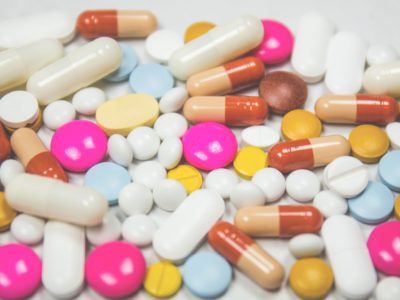Zinc is a nutritionally essential mineral that plays a role in hundreds of chemical processes in the body. Over 200 enzymes involved in key metabolic processes require zinc to function. For example, zinc is required for immunological function, digestion, skin and hair health, acid-base balance, growth and development, genetic transcription, antioxidant action, and a variety of other functions.
Because the body does not retain zinc, it is necessary to consume it on a regular basis to maintain appropriate levels. Animal sources, such as meat, eggs, and shellfish, have better zinc bioavailability; whole grains and legumes offer lower bioavailability due to high phytate and fibre content, which prevents zinc absorption. Thus, according to several studies, vegetarians and vegans may need to ingest 50% more zinc than those who consume animal products on a daily basis.
According to an HSIS report, which is based mainly on findings from the National Diet and Nutrition Survey and DEFRA Family Food, 22% of 11- to 18-year-olds, 11% of 4- to 10-year-olds, 8% of 19- to 64-year-olds and 7% of people aged 65 and over have a zinc intake below the lower reference nutrient intake guidelines.
Zinc deficiency has been linked to stunted growth and development in children, pregnancy problems, and immunological dysfunction that increases infection susceptibility. Higher zinc requirements (e.g., during infancy, adolescence, pregnancy, and lactation) that are not met can also lead to deficiencies. Other factors that can lead to excessive zinc losses include diarrhoea, specific disease states (e.g., coeliac disease, Crohn’s disease, short bowel syndrome, cystic fibrosis), and treatment with certain drugs.
So yes, zinc is a crucial part of good nutrition.
There’s a growing awareness of the benefits of zinc to support our health, and during the pandemic, many even started taking self-prescribed zinc supplements to support their immune system.
But like everything, too much of a good thing can be a bad thing.
Nausea, vomiting, lack of appetite, stomach cramps, diarrhoea, and headaches can all be symptoms of too much zinc. When people consume too much zinc over an extended period of time, they may experience issues such as:
- Copper deficiency. Copper is quite important. Among many other functions, copper, in conjunction with iron, allows the body to create red blood cells. Copper is also required for the cell’s energy generation cycle. It aids in the absorption of iron from the intestines and in the formation of new bone and connective tissue. Copper deficiency can enhance oxidative stress by reducing glutathione peroxidase production.
- Risk of anaemia. Iron and zinc are competitors for absorptive routes. When zinc insufficiency coexists with iron deficiency, iron-deficiency anaemia may worsen.
- Reduced immunity. Although zinc is essential for immune system function, an excess of zinc might inhibit your immunological response.
- Low HDL cholesterol (“good” cholesterol) levels. According to numerous studies on zinc and cholesterol levels, taking more than 50 mg of zinc per day may reduce your “good” HDL cholesterol while having no effect on your “bad” LDL cholesterol.
Between nasal sprays, supplements, denture creams (yes, they might contain zinc!), food, and other potential sources, zinc levels can quickly add up, especially if you’re taking external mega-doses.
Should we stop supplementing?
No. Supplements can be essential to restore balance. I use them as part of my protocols with great success. However, supplements are not necessarily free of harm. There’s a concerning growing trend of people self-prescribing supplements, often poor quality ones. The intentions behind this behaviour are good: being proactive about one’s health, taking ownership, and wanting to improve symptoms. I completely understand and empathise with this mindset. However, the systems in our body are interconnected, meaning there’s interdependency and symbiosis between different elements that need to be considered when supplementing.
A certified practitioner can help identify potential nutritional deficiencies, recommend testing to assess levels and define an appropriate protocol to restore balance. My approach is always to start with food first, ensuring the diet is balanced and customised to each individual’s needs. Supplements are also a core part of my approach, but the protocol needs to be defined on a case by case basis, considering each individual as a whole.
While zinc is key to so many biological functions, the best way to ensure you’re getting the correct intake for your body is to seek out a professional nutritionist who can give you guidance on your specific nutritional needs.




Leave a Reply